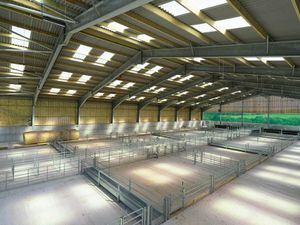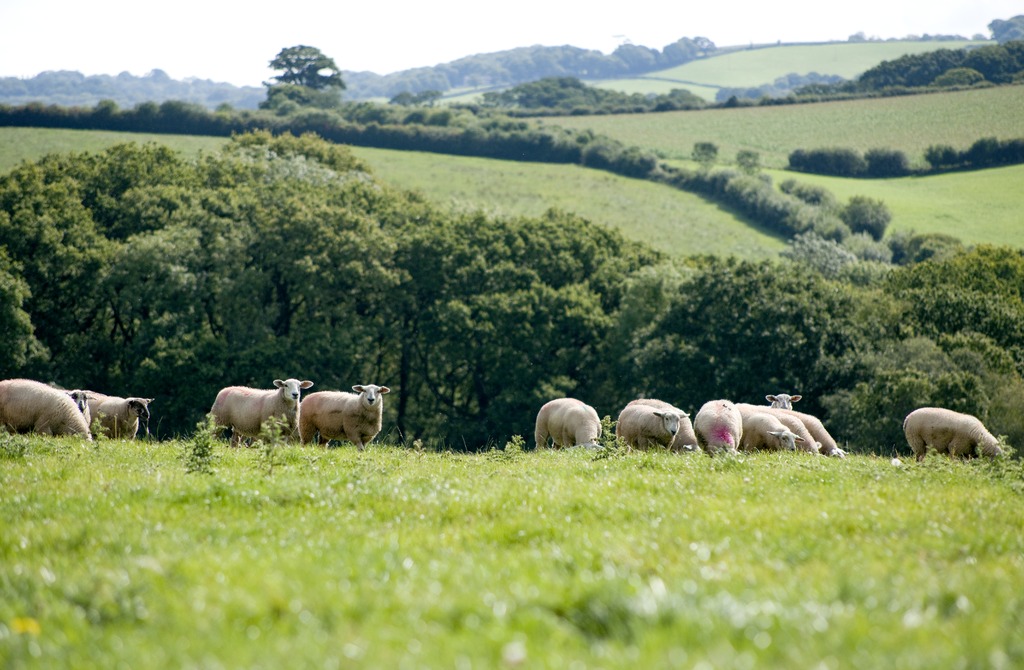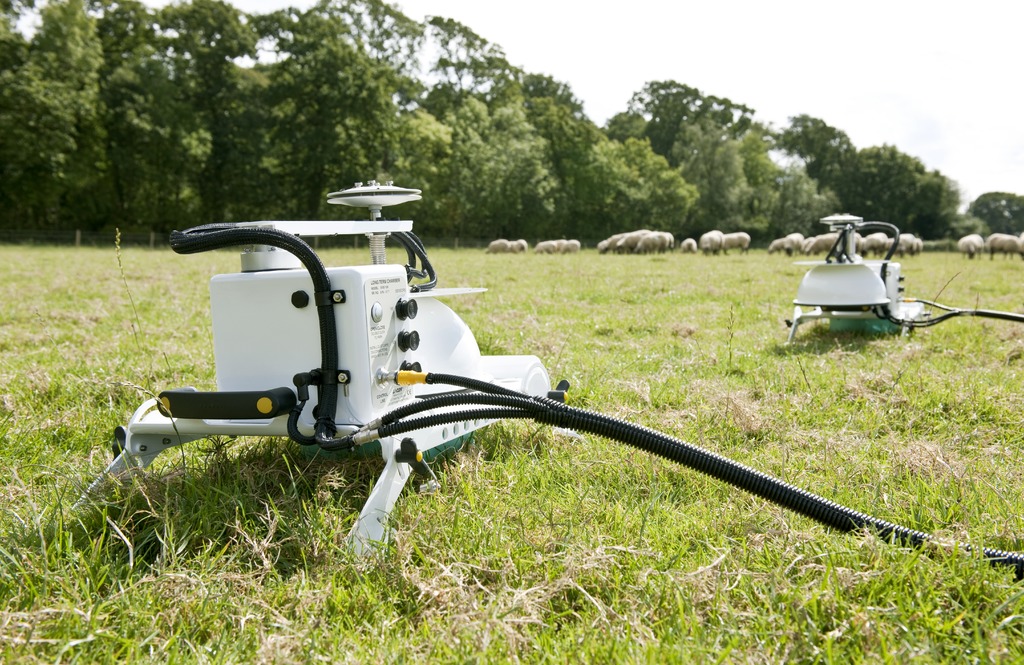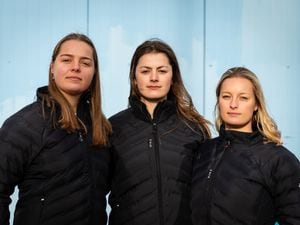High tech ‘sheep shed’ to monitor impacts of livestock
The new facility is part of Rothamsted Research’s ‘farm lab’, which measures how sustainable different farming methods are.

A new high-tech “sheep shed” has been unveiled which researchers say will allow them to monitor the impacts of livestock in real-world farming systems.
The new facility is part of Rothamsted Research’s “farm lab”, which measures how sustainable different farming methods are at its North Wyke site near Okehampton, Devon.
It will help experts monitor the impacts of different ways of rearing and producing lamb – and examine whether a switch away from red meat is good for the environment in the UK.
Three self-contained farms have been established where every input such as fertiliser and manpower and all outputs including pollutants in the water that runs off fields, greenhouse gases and profits are monitored.
The new “Robert Orr small ruminants” facility will house 400 or more ewes and up to 60 goats, with group and single pen facilities for feeding and behavioural research trials, including 24 automatic feeding pens.

It will allow researchers to measure the nutrients taken in, animal growth, urine and faeces produced and the greenhouse gases being emitted by the sheep, individually or in groups.
And it will keep the flocks reared on the different farming systems separate to fully examine and compare the environmental and efficiency benefits of each.
Professor Michael Lee, head of the North Wyke site, said agricultural research often focused on individual animals or field-scale trials, and it was not always easy to extrapolate that up to the level of the farm.
“All the research we do, the leading stakeholder is the farmer, to help them improve their productivity, sustainability, reduce emissions and improve efficiency generally.
“Instead of doing that at a field or animal scale, let’s do that at a farm scale.”
For four years, the three farming systems tested have been permanent pasture which uses fertiliser, a quasi-organic system which relies on natural nutrients such as manure, and a short-term lay system which sees farmers ploughing and sowing grass crops for feed.
Now the farm is set to continue with permanent pasture as a “business as usual” option, but the other two options being tested will change.

Firstly, a mixed set of plants will provide nutrition for the animals and natural nitrogen supplies, but also attract butterflies, bees, birds and other wildlife.
And the third system will see pasture switched over to arable farming to measure the impact of changing from livestock production to crops in an area such as Devon.
“There’s been a lot of press about the detrimental impact of grazing livestock on the environment,” he said, but there was no real evidence on the impact of removing “ruminants” such as sheep and cattle from the food chain.
“We want to run these experiments so we can have enough data to show the true impacts,” he said.
The livestock in the experiment are mostly fed from the fields of the farm, and are only given supplementary feed if they are not putting on enough weight, which comes from products humans cannot eat and is not imported.
Prof Lee said the idea was to look at if it was possible to develop a system which utilises the natural benefits of grazing animals such as cattle and sheep for food security.
Lyndsay Chapman, chief executive of the Centre for Innovation Excellence in Livestock (CIEL), said: “It’s exciting to see the Orr sheep facility come to fruition.
“Its versatility, combined with the expertise of the North Wyke team, make it ideal for supporting a broad range of projects across health, welfare, nutrition and behaviour.
“Working together with industry, we’re delivering valuable solutions for a sustainable livestock sector.”





